This week, because it’s Forensic Nurses Week, I’d like to talk about how we can keep getting better. First up: one way to generally improve our value to patients and the justice system simultaneously.
There’s a lot to really celebrate about the work we do in forensic nursing. But we still have areas upon which to improve. Often times our field is preoccupied with the legal aspects of the work, sometimes to the detriment of good patient care. There is an abundance of research that underscores just how extensively violence impacts health in both the short- and long-term. And yet so much focus is on evidence collection and the patient as “crime scene” (a completely unfortunate designation).
The best thing we could do to be better at this work, both in the exam room and in the courtroom would be to do everything in our power to improve our assessment skills. Participate in as many educational sessions as we can find on injury evaluation and general physical assessment; spend time with more experienced clinicians crafting comprehensive differential diagnoses for the injuries and infections we see. Not only will it mean better care for each patient who sees us (and appropriate anticipatory guidance prior to discharge), it will also mean that if we take the stand we can speak extensively to the clinical care of our patients, including what else could have caused the issues the patient had (and why we ruled out many of them). Why is that important? Because we are licensed nurses and our role is to provide healthcare, not investigate crime. Want to have the opportunity to tell a jury what the patient said about the assault? It’s a lot less likely to happen if our exam process sounds more like an extension of the investigation rather than a comprehensive healthcare encounter. Want to be the most credible witness possible? Make sure there is little room to attack testimony as biased.
On a related note, I don’t think it’s necessary to be an advanced practice clinician to be a good forensic nurse, but because of the autonomous nature of this work, we do have to develop some of those skills to be particularly proficient. That comes from flexing our assessment muscles (and the documentation muscles that go with it). Comprehensive patient assessments (with corresponding comprehensive documentation of those encounters) increase our efficacy in court. Because our job in court is to teach–not to get the “bad guy” and not to make the prosecution’s case.
I would submit that if we concentrate on enhancing our clinical capacity, patients will also benefit in the courtroom, but the inverse is definitely not true. If we focus on what could happen in the courtroom, patients’ healthcare will suffer. I see it over and over again when I review records and listen to clinicians testify.
Tomorrow, let’s discuss documentation– specifically the one thing that could universally improve medical-forensic record completeness.


2 replies on “This Forensic Nurses Week, Ask Yourself: How Do We Do Better?”
Well said, Jen! Comprehensive clinical assessment skills don’t come overnight…it takes practice, and guidance to cultivate them…thanks for the reminder….to always remember that we are nurses caring for patients- not crime scenes!
Forensic Nurses Week recognizes nurses who provide exceptional care everyday to men, women, children impacted by violence abuse.